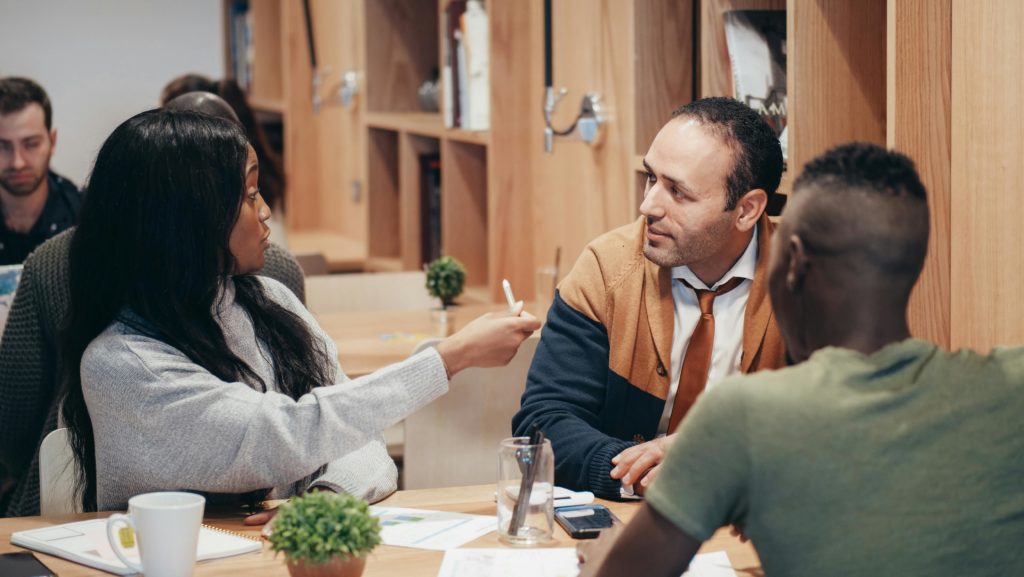The project team has been actively engaged this summer, participating in key international events, driving the project’s visibility and impact.
From July 1 to 4, 2005, Lea Ferrari and Teresa Maria Sgaramella took part in the 19th European Congress of Psychology held in Paphos, Cyprus. The theme of the event, “Transforming Psychological Science: The 2030 Agenda,” perfectly aligned with the innovative approach to Career Guidance and Counseling (CGC) promoted by our project.
During the congress, we had the opportunity to lead a workshop titled: “Training Future Career Guidance Counselors: Integrating the CGC Roundabout Method for Multi-Actor Digital Competence Development.” The session showcased the work carried out by the DigiTrans team, with a particular focus on the Higher Education Training Program developed as part of Work Package 4 (WP4) and implemented in Italy, Germany, and the Netherlands. After introducing the core principles of the Roundabout methodology, we presented the structure of the training program, along with selected materials and examples of student outcomes. The workshop drew an international audience, including scholars from Poland, Bulgaria, and South Africa, which enriched the dialogue.
The discussion that followed was particularly fruitful. On the one hand, participants reflected on the challenges related to stakeholders’ engagement, a common issue across contexts. On the other, the conversation explored strategies for fostering positive digital attitudes among future career counselors, including the development of targeted skills to support the digital competence of their future clients. The strong interest and engagement shown by participants underscore the relevance and timeliness of the topic, highlighting a concrete response to current societal needs. This focus not only contributes to improving the quality of future career guidance services but also aligns with and supports the achievement of Sustainable Development Goal 8, promoting inclusive and sustainable economic growth, employment, and decent work for all.
In the week of 7-10 July 2025 two other members of the DigiTrans teams, Jan Woldendorp and Jenny Schulz, had the privilege of contributing to the 14th Biennial Conference of the Society for Vocational Psychology at the University of Lausanne in Switzerland. Under the theme “Bridges in Vocational Psychology” we quite literally built a bridge – between digital competences and Multi Actor Career Guidance (MACG). The title of our 90-minute workshop was Career Counselling and Guidance in Times of Digital Transformation: Learning the Roundabout Methodology”. In our workshop we introduced our Erasmus+ project and explored how collaborative counselling processes can empower people to develop digital competences with the support of a broader network. Building on the strong collaboration in our project team and with the further contributors to the workshop from Prof. Dr. Peter C. Weber, Martin Stark, Teresa Maria Sgaramella and Lea Ferrari we presented the tools and materials developed in our project.
Together with twelve participants from counselling practice, research, and higher education institutions across nearly all continents, the workshop became a truly global learning experience. In our session we highlighted some of the main outcomes of our CGC-DigiTrans project:
- Multi Actor Career Guidance in times of digital transformation
- The Roundabout Method – a structured, participatory approach
- Digital competences as a key to inclusion and lifelong learning
- A curriculum for training professionals in the Roundabout Method
In the interactive session we discussed the challenges career professionals meet in working with a multi-actor approach in helping clients to participate actively in the digital transformation. And together with the participants we ‘navigated the roundabout’ and explored possible bridges that can lead to a future in which the career guidance and counselling community can play an active and integral role in helping clients to participate actively in the digital world.
Some of the key learning outcomes of the session were:
- Digital transformation is everywhere – in everyday life, in work, in learning. From AI to remote collaboration, participants shared concrete examples from their contexts.
- Those without digital competences risk being left behind – while counsellors must constantly adapt to new skill demands and labour market dynamics.
- MACG creates real synergy – involving actors like parents, friends, employers, training providers or support services that can strengthen counselling outcomes, especially in complex career (re)orientation processes.



